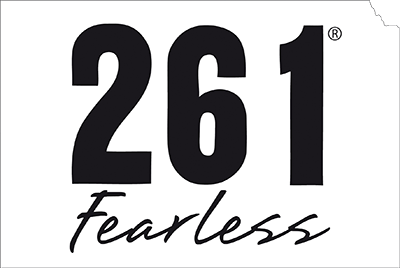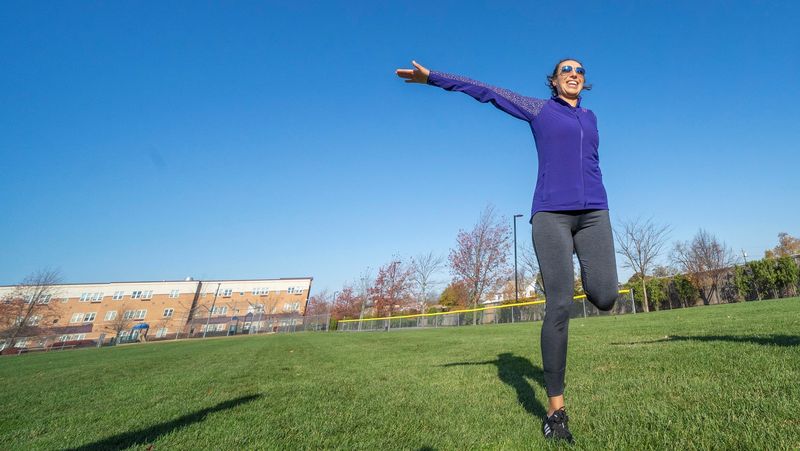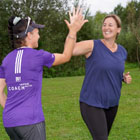1. Follow your local government advice. The spread of Covid-19 depends on our own, individual behaviours. The rules vary between countries depending on infection rates, stages in the pandemic and local disease modelling. We all need to heed these instructions in terms of how often we can go out, for how long and with whom.
2. Are you well? Don’t run if you have any symptoms such as a cough or a fever. Even if you just feel a bit out of sorts, it’s best not to go. We don’t fully understand the nature of Covid-19 and how it affects people, so play it safe. Similarly, if you have been unwell, you need to be fully better before you exercise. The time you need to self-isolate varies between countries but it’s at least two to three weeks and even then, if you still have symptoms, you shouldn’t go out.
3. Stay well. Long runs over around ninety minutes and very intense sessions can temporarily suppress your immune system, so be sensible. If your run time isn’t determined by your government (many countries are allowing one hour of exercise), then avoid the temptation to run for hours. There’ll be plenty of opportunities for endurance runs in the future. There’s also a temptation to run every day at the moment. If your body isn’t used to this, then be wary of overdoing it. Rest and recovery are very important and injuries need to be avoided.
4. Choose your time. You may not want to ‘cash in’ your exercise slot first thing in the morning but that may be the time you will encounter the fewest people. In the afternoons the pavements seem to be full of families out for a stroll, especially at the weekend. Evening times can be quieter too so look out for these slots and you’ll find it much easier to run safely.
5. Plan your route. Whilst your local riverside or parks may be the most scenic spots to exercise, they’re likely to be the busiest so think carefully about your route. It’s a good time to discover the lesser trodden paths. You may even end up with some new favourite runs. If you live in a more densely populated area, then chose routes where the paths are wide.
6. Pick your kit. Whilst there’s much less traffic on the roads it’s still important to be visible, especially if you’re opting for an early morning or late evening run. Whether or not you wear a mask depends on your local health advice. Some countries are advising that they don’t help to reduce the spread of Covid-19 whilst others require that people wear one whenever they leave the house. Go with your local instructions.
7. Observe social distancing. Always stay more than two metres (over six feet) apart from anyone you meet. Two metres is further than you think, so go extra wide to be on the safe side. Make your decision as to which side of the path you are taking early on so it’s clear. Calling out, ‘I’m going left’ or pointing is a good idea too. As a runner you may be moving quickly and this means there’s more time for both parties to move aside and feel comfortable with the distance. Speed doesn’t give you priority. Be courteous and be prepared to go out of your way, what’s a few extra steps?
8. Let others pass. Be a responsible runner. Now is not the time for bagging personal bests. If you come up to a narrow path and there’s not enough space to leave two metres between you and a passer-by, then be the one who runs back to a wider section of path. Be the one who stops and steps into a doorway to allow more distance between you. If there’s nowhere to go, then move as far to the side as possible, turn your back and cover your mouth and nose. No one wants to move near a runner who is gasping and spluttering.
9. Don’t be a spreader. Covid-19 is transmitted in droplets so refrain from spitting or emitting ‘snot rockets’. Be aware the virus can also survive on hard surfaces so if you are opening gates, doing press-ups against a bench or holding a handrail on a slope, then it may be on your hands. Avoid touching your face while you run and make sure you wash your hands thoroughly as soon as you get home and then clean the door handle and front door key that you used to get in.
10. Be cheery. Never underestimate the power of a friendly smile, a wave or a ‘Hello’. You may be the only contact that person has all day. Showing a positive attitude can help others to overcome their anxieties. We may be being pushed further apart physically but mentally we have the opportunity to come close than ever.
Dr Juliet McGrattan


